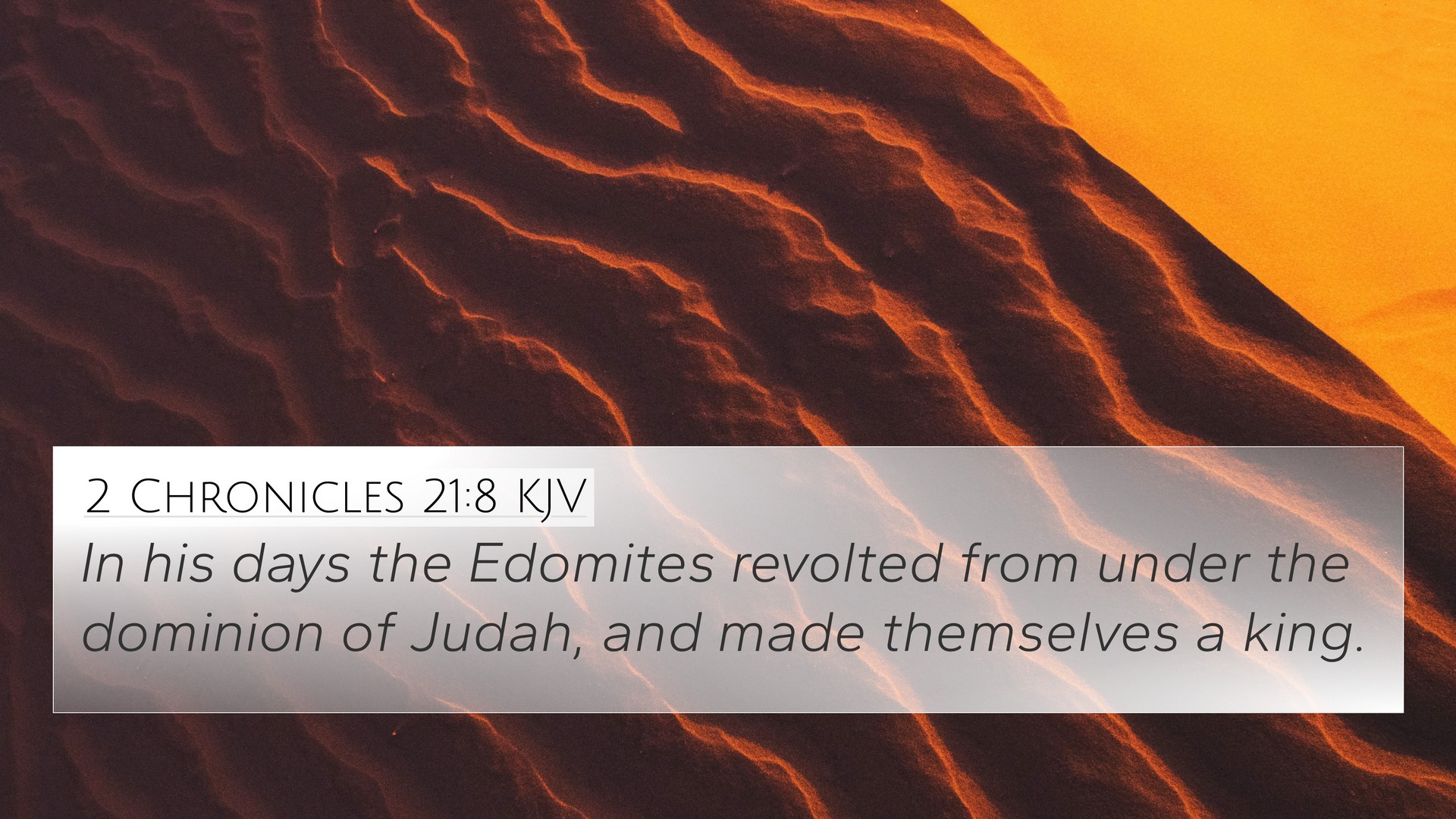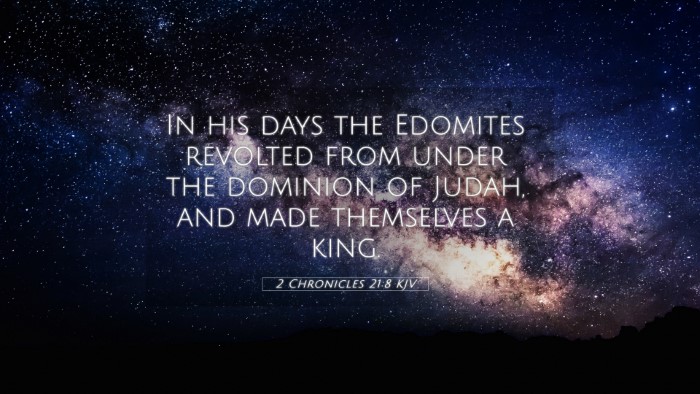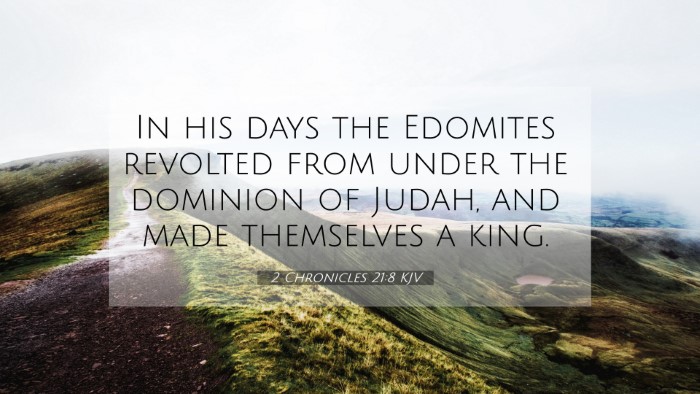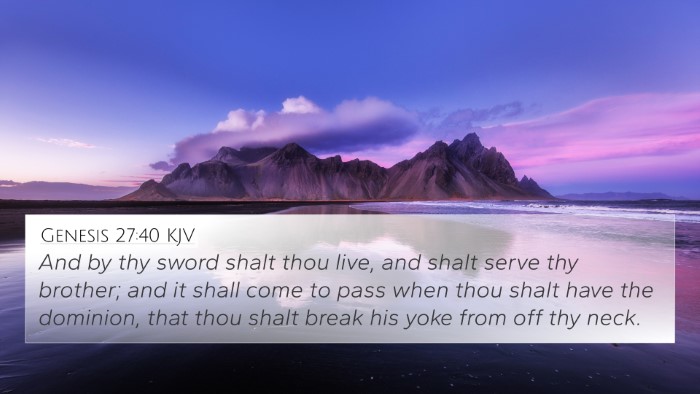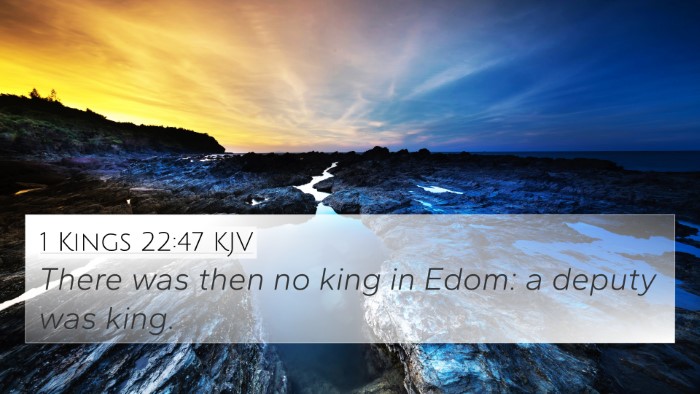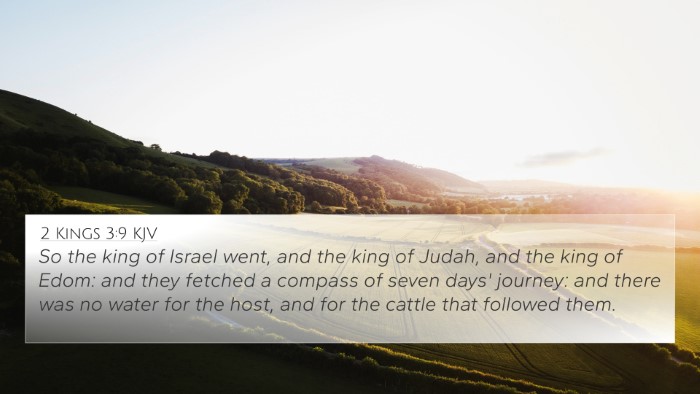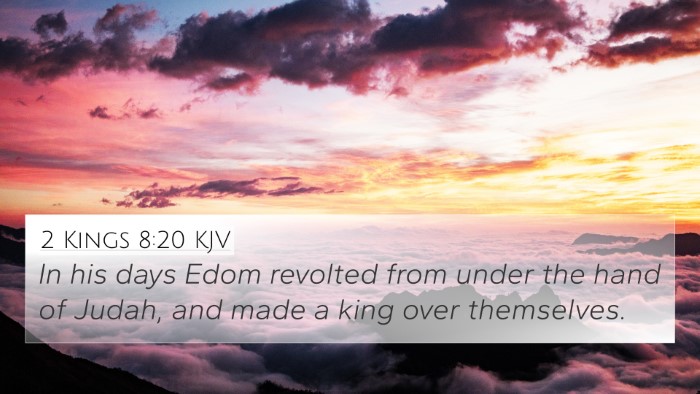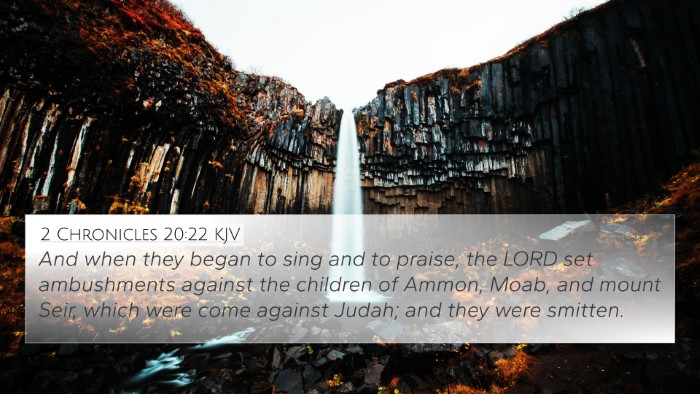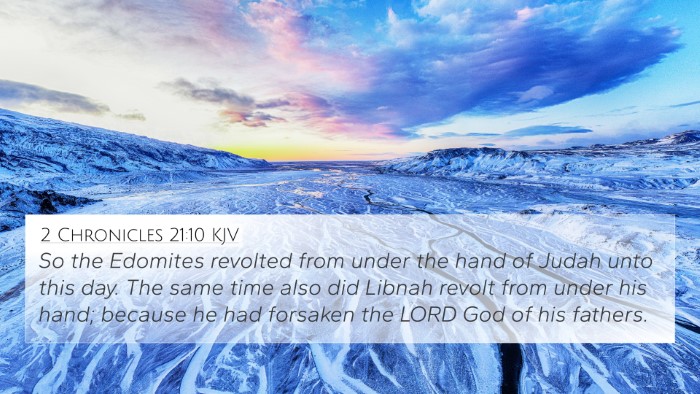Understanding 2 Chronicles 21:8
2 Chronicles 21:8 states:
"In his days the Edomites revolted from under the hand of Judah, and made themselves a king."
Verse Meaning and Context
This verse sets the stage for understanding significant events during the reign of Jehoram, son of Jehoshaphat, king of Judah. Jehoram's reign is noted for its turbulence and moral decline, which are highlighted in the broader context of 2 Chronicles 21. This rebellion by the Edomites signifies a pivotal moment in Judah's history and reflects the nation's internal strife and weakening political power.
Insights from Public Domain Commentaries
In examining this verse, we draw insights from prominent Biblical commentators:
-
Matthew Henry:
Henry emphasizes that the revolt of the Edomites under Jehoram illustrates the consequences of his poor leadership and idolatry. He points out that such revolts and conflicts often arise when the king leads the people away from God's ways, and this serves as a warning about the spiritual state of the nation.
-
Albert Barnes:
Barnes discusses the significance of the Edomite revolt, noting that it marked the end of Judah's dominion over Edom established during the reign of his ancestor, David. He highlights how the inability to maintain control over Edom reflects the declining authority and prestige of Judah during Jehoram's reign and draws parallels with other instances of rebellion in Israel's history.
-
Adam Clarke:
Clarke provides detailed historical context, explaining that the Edomites had previously been subdued by Judah. He notes that the emergence of their own king was a sign of rebellion and independence that further underlines the chaotic conditions that prevailed during Jehoram's rule. Clarke suggests that such divisions among neighboring nations often stem from internal strife in the kingdom.
Bible Cross-References
To enrich our understanding of 2 Chronicles 21:8, we can identify several related verses that provide context or thematic parallels:
- 2 Kings 8:20-22: Describes the rebellion of Edom and its implications for the kingdom of Judah.
- 2 Chronicles 21:10: Mention of Jehoram's failure and the resulting revolt.
- 1 Kings 22:51-53: Discusses the idolatrous practices of Jehoram that led to national decay.
- 2 Chronicles 21:12-15: Prophecy against Jehoram and its fulfillment, giving insight into the consequences of his actions.
- Amos 1:11-12: Prophetically addresses the sins related to Edom and their rebellion.
- Obadiah 1:1-2: Discusses the eventual downfall of Edom and its thematic links to Judah's decline.
- Micah 1:15: Reflects on the fate of nations, tying back to Judah's interactions with Edom.
- Jeremiah 49:7-22: A prophetic passage concerning Edom's fate, relating historical context to future events.
- Ezra 4:19: Links between opposing nations and the political struggles of Judah.
- Matthew 24:6: Jesus references the impending turmoil and rebellions that echo the historical account in Chronicles.
Thematic Connections
This verse highlights several significant themes within the scriptures:
- Consequences of Leadership: The downfall of Jehoram reflects how the actions of leaders can define a nation.
- Rebellion and Independence: The Edomites' revolt points to the cyclical nature of rebellion throughout Biblical history.
- Spiritual Decline: Jehoram's failure to follow God's commands leads to national disintegration.
- Divine Judgment: This event signifies God's displeasure manifesting in historical events.
Cross-Referencing Biblical Texts
Utilizing tools for Bible cross-referencing can deepen our understanding of such verses:
- Bible Concordance: A tool to identify where certain terms, like "Edom" or "king," appear across scripture.
- Bible Cross-Reference Guide: Helps connect passages thematically and contextually.
- Cross-Reference Bible Study: A method of studying the interconnections among various verses for deeper insight.
- How to Use Bible Cross-References: Develops techniques for effectively navigating scriptures and identifying parallels.
Conclusion
In summary, 2 Chronicles 21:8 serves as a crucial insight into the reign of Jehoram and the implications of leadership decisions in scriptural history. Through comparative Bible verse analysis and thematic Bible verse connections, we can appreciate the complexities of the Biblical narrative and its teachings on governance, spiritual fidelity, and divine justice. By linking Bible scriptures and understanding the inter-Biblical dialogue, believers can draw invaluable lessons applicable to their lives today.
